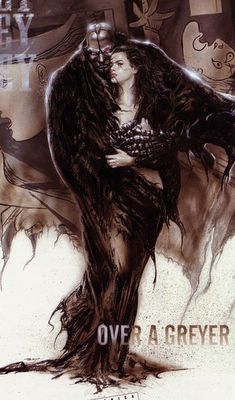
Thrusting Problems...
In reply to…
~~~~~~~~~~~~~~~
“The problem I’m having in writing sex scenes; is that inspirationally speaking, I find Sex more visual than mental.”
~~~~~~~~~~~~~~~
“…I must admit that pretty well all porn makes me want to heave, so I don't get my inspiration from there. (I tend to just ask people if I can watch them fuck, instead. I kind of prefer the non-stagy noises to the movie ones and I don't get put off by the soundtrack.)
I have to disagree, about – sex - being more visual than mental. Besides the obvious – sex is - primarily physical. I find penetration to be a pretty overwhelming act mentally. I think that thinking metaphorically really helps here. (Although I'd probably piss on someone from a long height if they started writing sex in metaphor - hopefully we're passed that *grin*.)
From a female standpoint, this person is actually invading the integrity of your body... and using you for friction. (Damn...that sounds kind of nasty.)
OR this person is so intent on merging with you, that they are physically crawling inside you, possessing you, becoming one single entity... (That is more hippy-trippy than I can stand. Pass the LSD).
Okay... how about this, on a more proactive side: after a certain level of arousal, nothing, absolutely NOTHING, is going to feel as good as a big, pulsing, meaty cock filling you up and rocking your world.
From a male perspective...well there's a whole lot of engulfing going on, a drive towards the core of this wonderfully hot, wet thing...but I'll leave that part to a male.
In any case, I think one of the problems is that we tend to think of fucking - penetration - as the culmination and everything else as foreplay.
But Clinton was wrong, it's ALL sex.
Perhaps if you took the view that fucking was just another form of stimulation, you might get over your need to write reams and reams about it, (do forgive the pun).
Personally, I always think of orgasms as being the culmination - and however you get to them, there really isn't an order of priority. That way you can have a lot of fun getting your character's off in ways that don't generally classify as sex (by Mr. Clinton's standards)..."
A silliness for your delectation:
~~~~~~~~~~~~
Entire Post (C) 2005 Remittance Girl
(Posted with Permission)
I have to disagree, about – sex - being more visual than mental. Besides the obvious – sex is - primarily physical. I find penetration to be a pretty overwhelming act mentally. I think that thinking metaphorically really helps here. (Although I'd probably piss on someone from a long height if they started writing sex
~~~~~~~~~~~~~~
(C) 2005 Remittance Girl
~~~~~~~~~~~~~~
"Um... I don't...I don't...I don't think I want..."
He slipped his hand down between her thighs, cupping her crotch, pulling her back against his hips. His cock, nestled between her ass cheeks, was warm and hard. And utterly riveting.
Her protests stopped cold.
He coaxed his fingers into the furrow of her cunt. "But I think you do."
She shuddered involuntarily.
He put his lips to her ear. "Am I not correct?" He slid his fingers between her plump outer lips in long, steady strokes. "Am I not correct?" His voice was harsher this time. Abruptly, he released her and stepped back.
Her mind went into overdrive. Part of her had an overwhelming urge to rip his head off and the other part wanted his fingers back where they were before.
He slid the soap over her and resumed his attentions. His soapy fingers moved over the small of her back, her butt cheeks and between the cleft of her ass.
Opening her mouth, she found no words to tell him to stop. She stared at the grubby tiles.
He pressed against her again; the soap making their skin to skin contact slippery. He moved his hips and his cock slid between her butt cheeks. He bucked against her once, twice and then he pushed her hard to the wall, sliding his fingers up inside her.
The tile felt cool against her breasts and the skin of her face.
He panted hard into her ear. "Am I not correct, Sophie?" Using the palm on her crotch to hold her hips still, he ground himself against her ass. He dragged his hand over her clit and fucked her with his fingers.
She trembled. It felt as if she were going to melt and be sucked down the drain along with her reluctance. “Yes." It was a whimper, almost lost in the hiss of the water and the echoes of the room.
"Good girl," he whispered. His breath came harder and his hip-thrusts and fingers grew more insistent.
Her muscles began to contract everywhere, clamping down around the fingers inside her and squeezing his cock between her buttocks. She arched her back and moaned. Orgasm waited just below the surface.
His body stiffened and then shuddered against her. Lowering his lips onto her shoulder, he held her still and bit her, moaning into the skin.
The hot gush of his cum shot up along her back.
Her orgasm lunged and overtook her. Intense blooms of pleasure burst from between her legs, reaching out to shake her body in waves that robbed her of balance.
Successive sprays shot heat up her spine as he came against her.
He began to move again, sending tiny aftershocks of pleasure rippling through both their bodies.
Abruptly, he backed away from her.
The water sprayed down onto her back -- icy cold. She screeched in shock.


